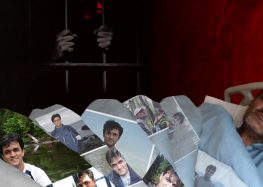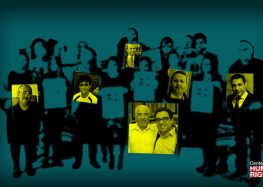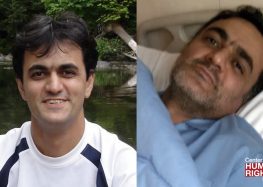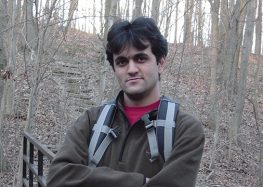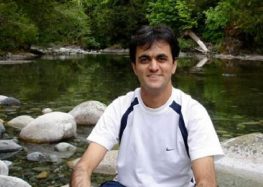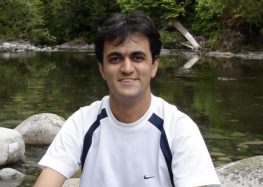Saeed Malekpour Under Renewed Pressure to Make Televised Confessions
 Security forces have renewed the pressure on Saeed Malekpour, the web programmer and Canadian resident whose death sentence was upheld by the Iranian Supreme Court last month, to make a televised confession, his sister Maryam Malekpour told the International Campaign for Human Rights in Iran.
Security forces have renewed the pressure on Saeed Malekpour, the web programmer and Canadian resident whose death sentence was upheld by the Iranian Supreme Court last month, to make a televised confession, his sister Maryam Malekpour told the International Campaign for Human Rights in Iran.
“[Security forces] have even threatened him that they would arrest me,” his sister said. “They told him, ‘Say you’re remorseful on TV, and we will help you.’”
Since the death sentence was upheld on 30 January 2012, “[Saeed] has been pressured to make confessions before a television camera, which he has fortunately not accepted,” Maryam Malekpour told the Campaign.
Maryam Malekpour continued, “The fact that they have been putting him under pressure for a television interview over the past two weeks shows that they have no evidence other than his confessions for justifying his death sentence. They want to justify their legitimacy this way. Saeed is innocent. He was a gifted student at Sharif University; his [entrance exam] ranking was 23rd in the College of Material Science Engineering. They want to sacrifice Saeed and others like him for proving a point that is unknown to me. I don’t know what to say; I don’t understand it. Saeed is a victim of a political game.”
———-
Related Link: Revoke Execution Sentence of Web Programmer
———-
Maryam Malekpour objected to the Supreme Court’s upholding her brother’s death sentence and told the Campaign that none of the deficiencies and problems with Malekpour’s case have been addressed.
“The Supreme Court had objected to two deficiencies in the lower court’s death sentence. One of the issues was that Saeed had stated he had confessed against himself under psychological and physical pressure and [the charges] would have to be proven. The other was that the Supreme Court had asked that a certified expert from the judiciary enter the case. Saeed himself had separately asked repeatedly through his lawyers for a certified judiciary expert, but in the meeting held after the Supreme Court’s deficiency ruling, Saeed’s interrogators appeared instead of judiciary experts. The interrogators who themselves built this case are certainly not objective,” she said.
Regarding the physical manifestations of torture, Maryam Malekpour added, “[The security forces] never sent Saeed to the medical examiner, either. Saeed’s jaw had been dislocated and his skull had cracked. Three years and several months later, most other signs of torture have disappeared, but during the first months it was horrible. But his dislocated jaw and his broken skull are visible.”
Security forces arrested Canadian resident Saeed Malekpour, 36, when he returned to Iran in 2008 to visit his ailing father. He appeared on Iranian state TV in 2009 and confessed to charges raised against him. In October 2010 he was sentenced to death on charges of “insulting Islamic sanctities,” for alleged “management of pornographic websites.” The Supreme Court overturned the sentence in November 2011 and forwarded his case to the Revolutionary Court for deficiencies in investigations and insufficient evidence. Even so, the Supreme Court upheld his death sentence on 30 January 2012.

